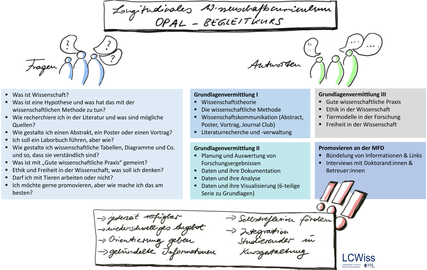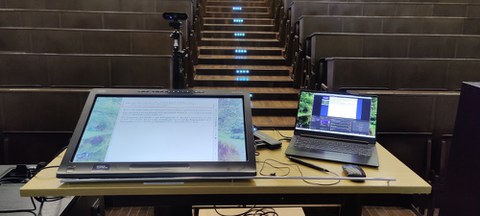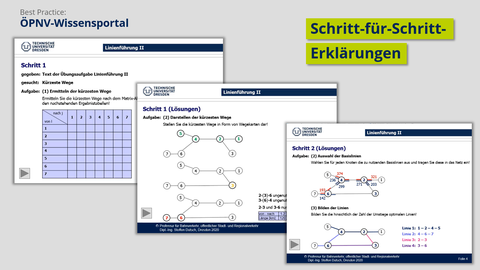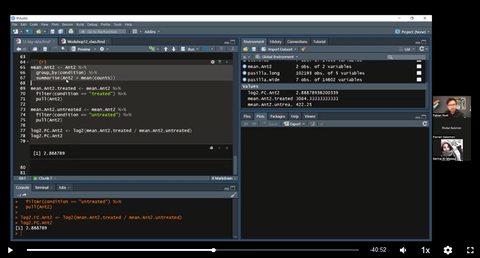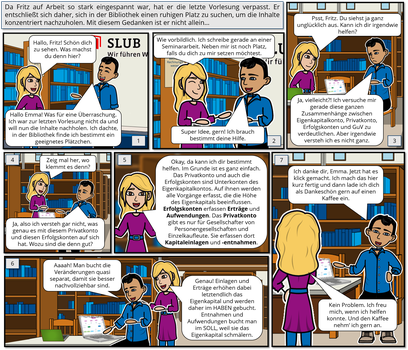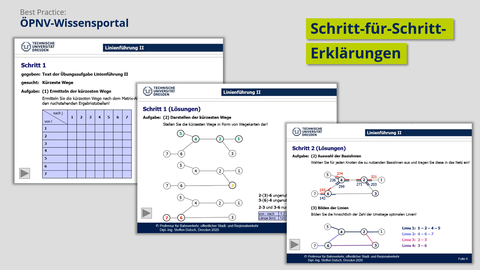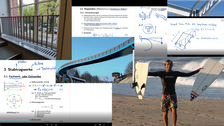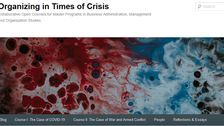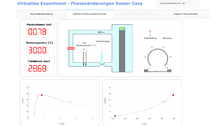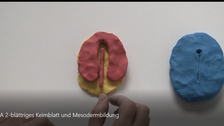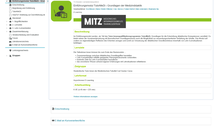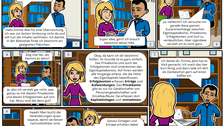E-learning gems gallery 2022
We are delighted once again to be able to share a gallery of e-learning gems with you. These are teaching methods that were employed at TU Dresden in the 2021/22 winter semester or 2022 summer semester.
We hope you enjoy perusing the entire gallery of e-learning gems. Perhaps you’ll find inspiration for your own teaching.
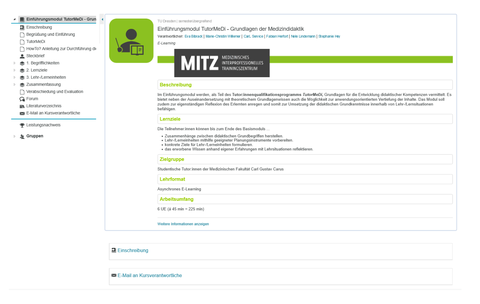
TutorMeDi introductory module – Foundations of Medical DidacticsEva Bibrack (#EB1)
Teaching staff: Eva Bibrack
Brief description: Students who want to work as tutors at the Medical Interprofessional Training Center (MITZ) and take on teaching work as part of this receive fundamental didactic qualifications during the initial training phase as part of the “TutorMeDi” modular qualification program. This comprises the asynchronous online introduction module “Foundations of Medical Didactics,” which provides basic didactic knowledge.
Keywords: Flexible, targeted audience, toolbox
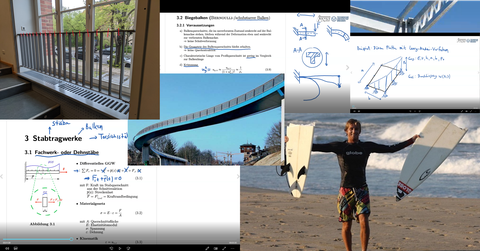
Linear and planar load-bearing structural elements:Dr.-Ing. Adrian Ehrenhofer (#AE1)
Teaching staff: Dr.-Ing. Adrian Ehrenhofer
Brief description: The subject “Linear and planar load-bearing structural elements” is taught in the advanced courses of study Simulated Methods and Lightweight Construction within Mechanical Engineering. It is a specialization of the fundamental topic Technical Mechanics (TM). The subject expands on TM with additional physical effects that play an important role in constructions, such as warping torsion or the issue of flexibility in beams/panels.
Keywords: Integration of lecture videos, hybrid teaching, methods of structural mechanics
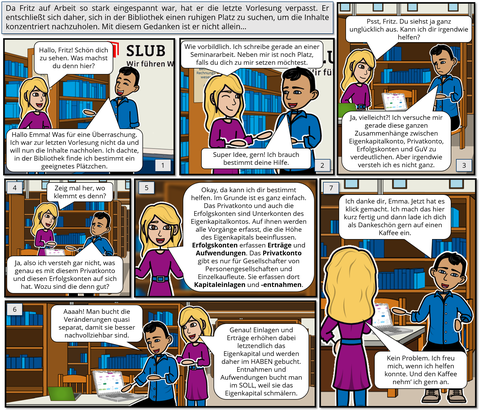
Foundations of Accounting: Anja Rogas (#AR1)
Teaching staff: Anja Rogas
Brief description: During the 2021/22 winter semester, this course was the first to use graphic novel-based independent study e-tutorials to teach the foundations of accounting. The students were able to repeat or consolidate selected content via the tutorials and independently review their knowledge using self-assessments.
Keywords: Graphic novels, independent learning, e-tutorials
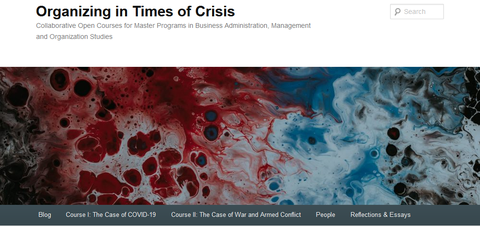
Organizing in Times of Crisis: The Case of War and Armed Conflict: Prof. Blagoy Blagoev (#BB1)
Teaching staff: Prof. Blagoy Blagoev
Brief description: This hybrid Master’s degree course was organized as a reaction to the war in Ukraine by various universities in the German-speaking world. It has a collaborative, open teaching format with both online and on-site elements. Based on online videos, reading material and press releases, the seminar discussed the impact on and the role of different forms of organization(s).
Keywords: Collaborative, current, participative
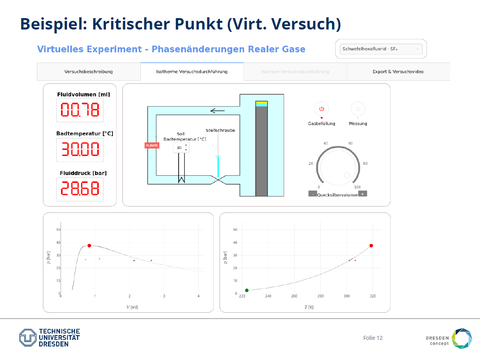
Technical thermodynamics: Prof. Cornelia Breitkopf (#CB1)
Teaching staff: Prof. Cornelia Breitkopf
Brief description: The course is offered in the Mechanical Engineering Bachelor’s degree program and provides students with a theoretical understanding of thermodynamic systems and the skills to define and solve practical problems. Comprising a lecture (2 hours per week) and a practical, the missing training component left a large gap in the fundamental understanding of elementary relationships and approaches.
Keywords: Fundamental lecture, thermodynamics, engineering
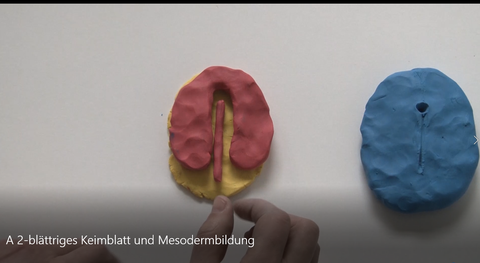
General Embryology: Prof. Christian-Albrecht May (#CM1)
Teaching staff: Prof. Christian-Albrecht May
Brief description: General embryology focuses on the early development the human body from fertilization up to organogenesis. With this fundamental understanding, students will be able to deduce many variations in the further formation of the human body and gain a deeper understanding of the links between morpohological structures.
Keywords: Human organogenesis
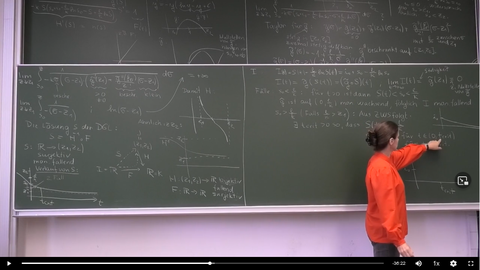
Differential equations for Teacher Training in Mathematics at secondary schools and vocational schools: PD Dr. Eva Fasangova (#EF1)
Teaching staff: PD Dr. Eva Fasangova
Brief description: The course was held in hybrid form, combining online and on-site sessions. Lectures followed conventional format with illustrations on the board and was video recorded. There was an OPAL course with materials for students, including ONYX tests and copies of what was written on the board. 13 videos, each 1.5 hours long, were uploaded to Videocampus Sachsen. Students were provided with notes from each lecture.
Keywords: Differential equations, modeling, Covid-19
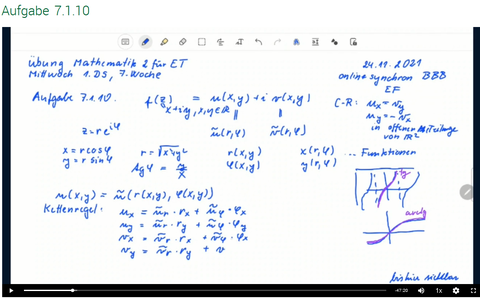
Mathematics II,1 for Electrical Engineering, Information Systems Engineering, Mechatronics, Renewable Energy Systems and Education/Electrical Engineering: PD Dr. Eva Fasangova (#EF2)
Teaching staff: PD Dr. Eva Fasangova
Brief description: Practical held online via BigBlueButton. Tasks from the lecture notes “Practical tasks on complex analysis” by Ute Feldmann, Wiltrud Kuhlisch, Antje Noack, Hanka Pfeifer and Reiner Vanselow were explained on the tablet in real time, calculated by hand and video recorded. These videos were uploaded to Videocampus Sachsen and made available via the corresponding OPAL course.
Keywords: Complex analysis, tasks, complex numbers
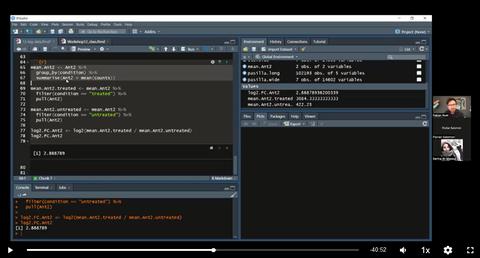
R Course 22 (aka Exercise: Genetic and Quantitative Analysis of Stem Cell Biology 2022): Dr. Fabian Rost (#FR1)
Teaching staff: Dr. Fabian Rost
Brief description: Participants of this course learn practical data analysis using the R programming language. Students are taught the basis of using this programming language, how to read and process data, how to calculate statistical parameters, how to create illustrations that can be used in publishing, how to perform statistical tests and how to analyze genomic sequencing data.
Keywords: Data analysis, statistics, programming
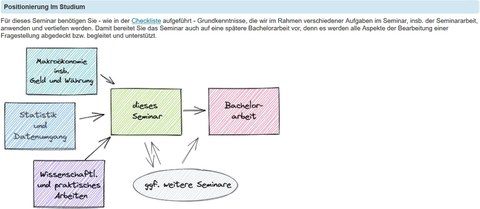
“Current Issues in Monetary Policy / Inflation & Inflation Forecasts” seminar for undergraduate students: Dr. Gunda-Alexandra Detmers (#GD1)
Teaching staff: Dr. Gunda-Alexandra Detmers
Brief description: This undergraduate seminar links current issues in monetary policy with academic work. The focus was on a current and relevant topic, which the students investigated in groups and individually using a variety of methodological approaches. The individual learning activities mapped out the scientific working process.
Keywords: Virtual collaboration, flipped classroom, group discussion and peer feedback
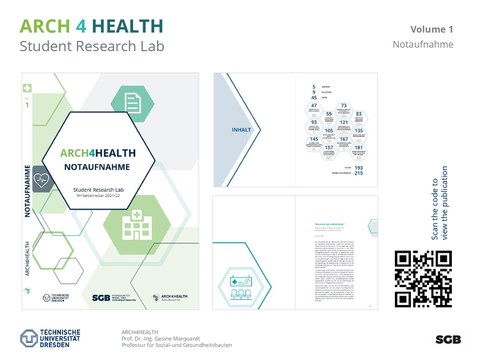
ARCH4HEALTH Student Research Lab: Prof. Gesine Marquardt (#GM1)
Teaching staff: Prof. Gesine Marquardt
Brief description: In the ARCH4HEALTH Student Research Lab, students research a wide range of issues relating to healthcare building construction. With the help of hybrid teaching methods such as videos on OPAL or the use of discussion platforms such as Miro, students are encouraged to conduct independent or joint exploratory research on a certain aspect of healthcare.
Keywords: Architecture, healthcare buildings, research
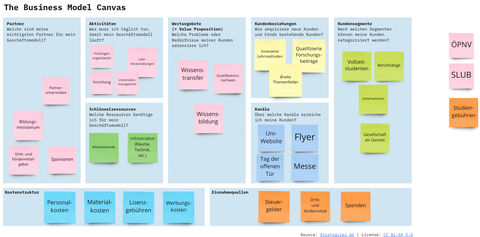
Introduction to Business Information Systems (EWI): Isabell Lippert (#IL1)
Teaching staff: Isabell Lippert
Brief description: Students are taught the fundamentals of business information systems, an intersection between computer science and economics. They learn about information technology and the latest basic principles in the business environment, particularly in the subfields of information management, business intelligence, operational application systems, and systems development.
Keywords: Undergraduate studies, business information systems
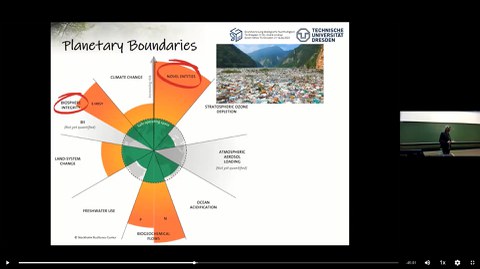
Foundation Lecture on Ecological Sustainability: Kristin Fiedler, B. Sc. (#KF1)
Teaching staff: Kristin Fiedler, B. Sc.
Brief description: As part of the studium generale, this interdisciplinary lecture series offers those interested in this topic the opportunity to learn about sustainability and climate change, to understand the causes and possible courses of action, and to get to learn about potential solutions. Participants engage in discussions with people involved in sustainability and participate in societal discourse.
Keywords: Education for sustainable development, interdisciplinary learning, open educational resources
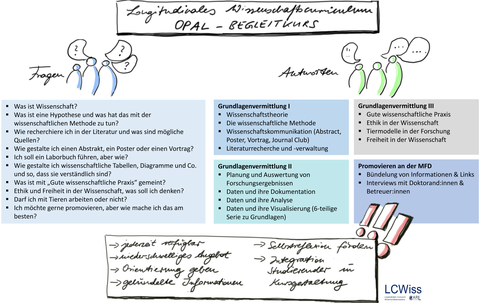
LCWiss – Longitudinal Curriculum for Scientific Competence in OPAL: Dr. Lydia Günther (#LG1)
Teaching staff: Dr. Lydia Günther, Nadja Jahn,
Maximilian Vogt
Brief description: Acquiring scientific competence is a crucial objective of academic education!
Our innovative OPAL course supports this goal by offering students at the Faculty of Medicine the opportunity to learn about the foundations of scientific work at any time and at their own pace as well as to inform themselves about doctoral studies with the help of interviews.
Keywords: Scientific work, doctoral studies, good scientific practice
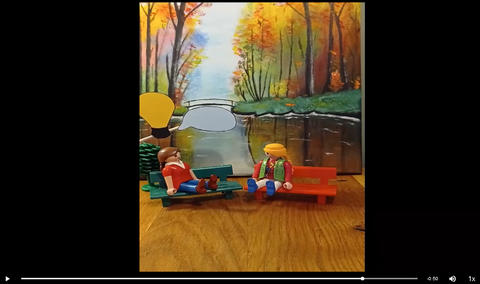
Areas of Activity for Vocational Didactics: Martin Karstädt (#MK1)
Teaching staff: Martin Karstädt
Brief description: In this seminar, students in the 5th semester of their studies in Teacher Training for Health and Nursing Care in vocational schools explore a range of topics that are significant in curriculum development for health and nursing care training. These topics are intrinsic to their later professional life within the context of the didactic lesson planning.
Keywords: Curriculum development, places of learning, methodological strategies
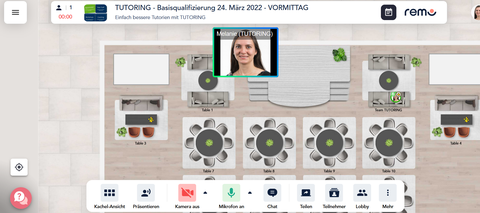
Foundation Qualification for Tutors using the Remo Virtual Conference Tool: Dipl.-Psych. Melanie Ludwig (#ML1)
Teaching staff: Dipl.-Psych. Melanie Ludwig
Brief description: This optional foundation qualification course is open to tutors in all courses of study at TU Dresden. The course enables participants to explore topics such as the methodology and didactics of tutorials and exercises. In supplementary workshops, they learn how to give presentations or consolidate their intercultural skills, which they can then use in their own teaching.
Keywords: Qualification, tutors, continuing education
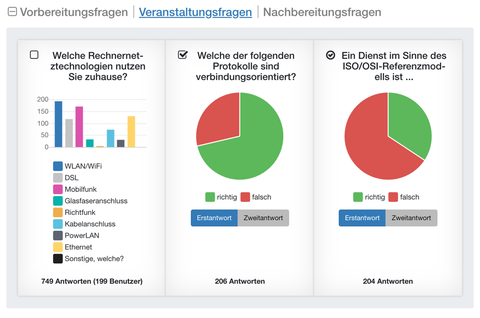
Computer Networks lecture & practical: Dr. Markus Wutzler (#MW1)
Teaching staff: Prof. Alexander Schill,
Dr.-Ing. Markus Wutzler, Dr.-Ing. Iris Braun
Brief description: The Faculty of Computer Science’s Computer Networks course provides an introduction to computer networks and familiarizes students with the basic principles, technologies and protocols of computer networks. Lecture content is available as videos with slides. Students can work on practicals and check the answers independently online. Solutions and any questions are discussed on site.
Keywords: Computer networks, blended learning, self-assessment
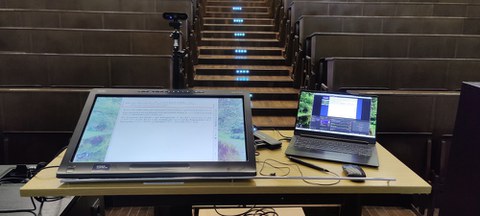
Geometry for Mathematics Teacher Training Students: Dr. Norbert Koksch (#NK1)
Teaching staff: Dr. Norbert Koksch
Brief description: The provision of all the coordinated course material, the submission of homework, the return of corrected homework and solution sheets, and the assignment of the 150 examination dates were all organized in one course. The on-site lecture was recorded and made available to all students as well as to the state examination candidates with a concentration in geometry.
Keywords: Coordinated material, entire course organization via the OPAL learning platform, hybrid lecture with asynchronous video recorded with simple equipment
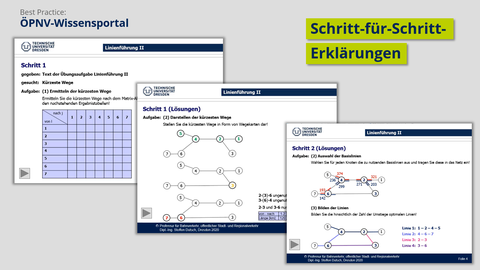
Operational Processes and Planning in Public Transport: Steffen Dutsch (#SD1)
Teaching staff: Steffen Dutsch
Brief description: The “ÖPNV Übungs- und Wissensportal” (Public Transport Practice and Knowledge Portal) is an OPAL course that supports students as they complete modules in the public transport subject area in both on-site and online classes. It provides educational videos relating to the lectures, videos that explain how to solve complex tasks step-by-step, and tests that enable learners to monitor their progress.
Keywords: Introductory lectures, joint exercises, progress tests
